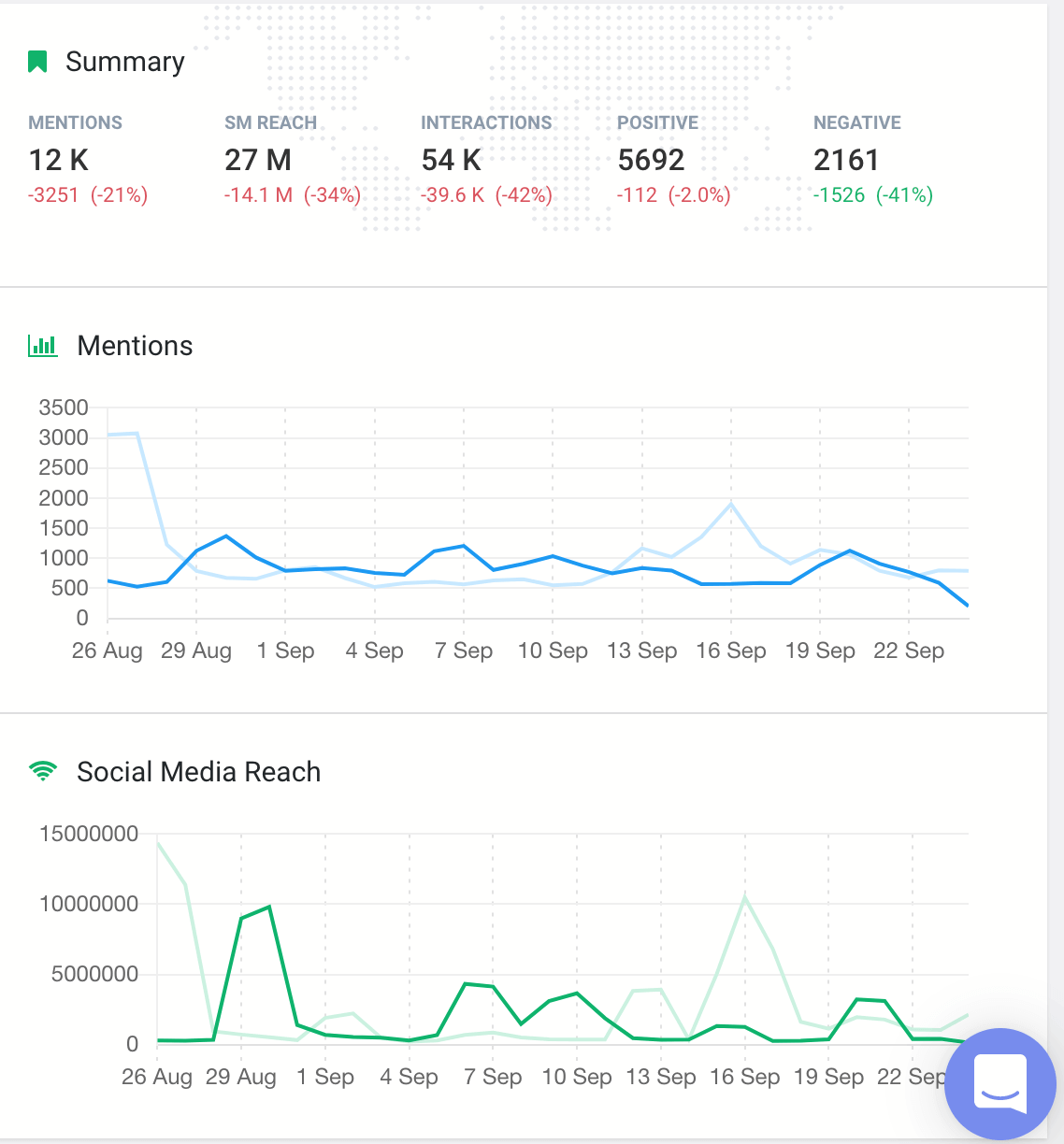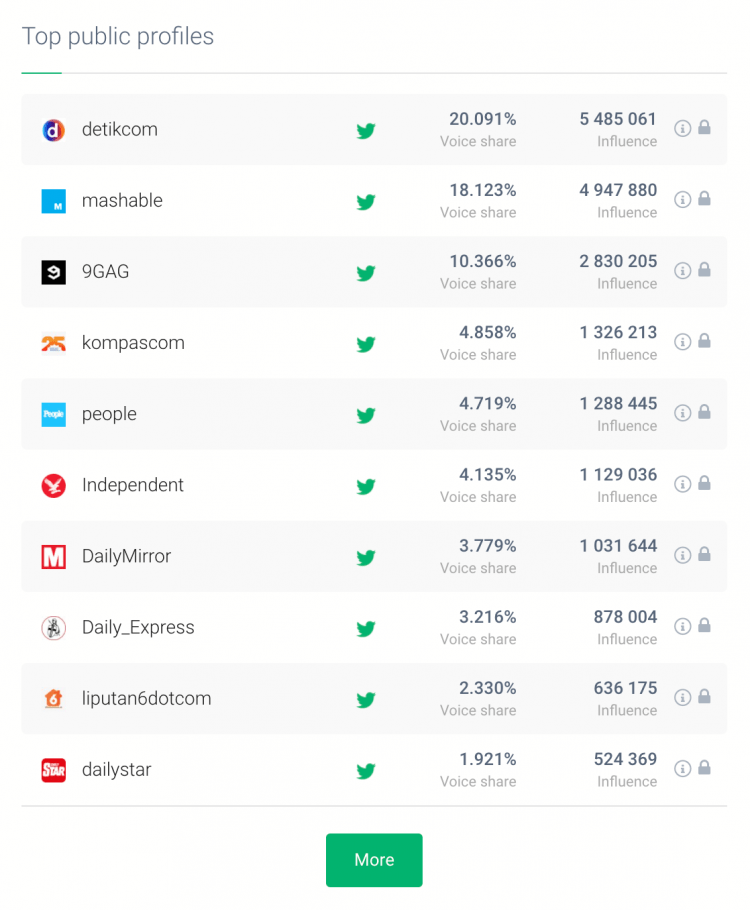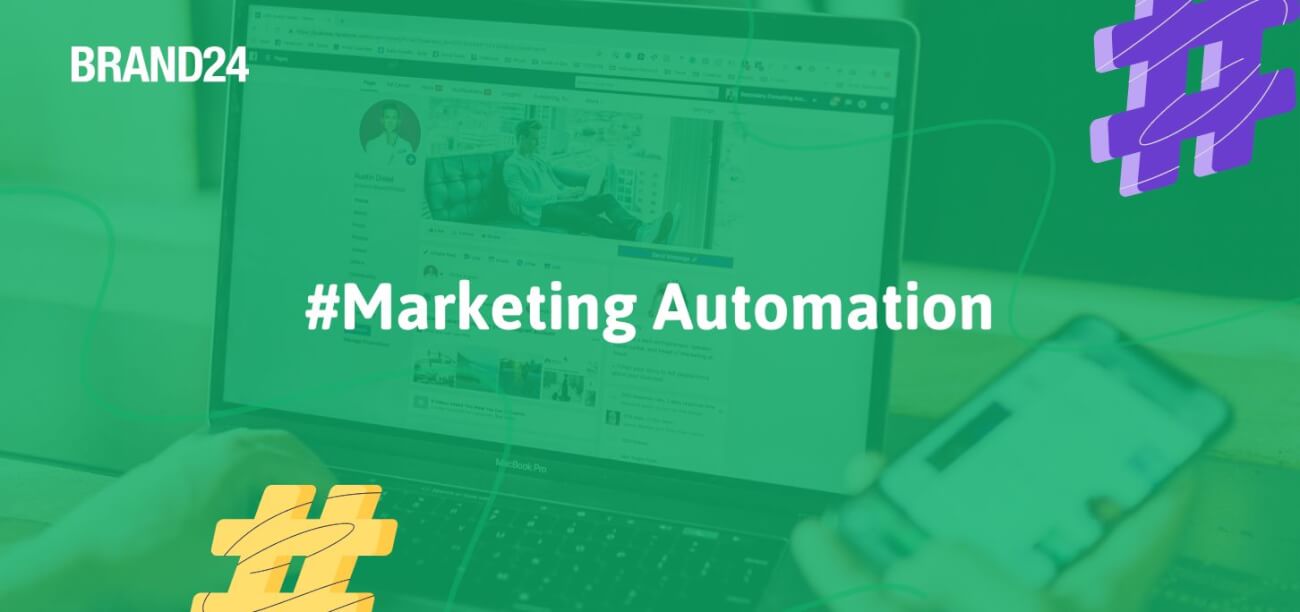A complete guide to personal branding
Table of contents
How do you present yourself online? What do people see when they google your name? Are you considered an influencer in your field or a mentor to others? The answer to all these questions is your personal branding.
Personal branding is one of the most important aspect of your online presence. Branding can have a positive or negative effect on your job offers, type of social media campaigns you can run, and many other situations in your life.
This blog post will detailed how to build your personal brand and how to protect it. Branding your online presence does not have to be hard, though it requires some work from you. Effective personal branding is not an overnight success.
The good news is, you will be able to see the results of your work and benefit from your personal branding.
Ready? Let’s go!
What is personal branding?
Personal branding is the way you present yourself both on and offline.
Personal branding is a holistic process that is not limited to social media presence. While creating your own brand, you have to think about your logo, brand voice, and topics you want to cover.
While creating your personal brand, think what do you want to be known for. Do you want to focus on social media? Or are you more interested in becoming an expert in your field and publishing articles in professional magazines?
Before you start working on your personal brand, you have to know what your goal is. All your future activities will depend on the primary goal of your actions.
Why is personal branding important?
Personal branding is important to everyone these days. Your potential future employer, wife, husband, or business partner can look up information about you and decide on the nature of future relationship.
You have the power of information when it comes to personal branding. You can decide what is published about you, you can influence the tone of voice, and, thanks to the right to be forgotten, have some information removed from the web.
Even if you do not plan on building your personal brand, the information about you is already out there. If you have a Facebook, Twitter, or Instagram profile, some private information will be available online.
Personal branding is all about writing the story about yourself. First, you need to establish how you want to be perceived and then writing the story yourself.
How to build a personal brand?
Building a successful personal brand is a lengthy process. Hopefully, with our personal branding guide, you will be able to create your personal brand that will help you achieve your goals.
The process of building a personal brand can be divided into three parts:
- Building your online presence
- Building trust and community around your personal brand
- Growing your brand by working with other people in your field.
First things first, let’s start with the basics of building your personal brand.
Determine what you want to be know for
Before you start creating social media accounts, writing articles, and preparing dedicated content, you have to know why are you investing your time and other resources in personal branding.
That means you have to answer one simple question — what problems of your audience do you want to solve? After all, you are creating your personal brand because you want to interact with other people.
How do you want to be know? Do you want to be considered a serious person within a serious industry, for example, law or business? Or can you slip in a joke from time to time?
The same rule applies to choosing the platforms you will employ for personal branding. You can use different tone on LinkedIn than on Instagram.
In other words, your personal branding strategy will determine your actions. That is why, before you start exploring your options, you need to know what you want to achieve.
While writing your strategy think about factors such as:
- your audience. Who do you want to reach?
- their problems. What problems do you want to solve?
- your value proposition. What differentiates you from other people in your field?
Your strategy is the document you need to proceed. Without your personal branding strategy, you will have harder time reaching your desired audience, protecting your brand during a crisis, or even staying on top of your content.
Audit existing content about you
Before you delve into preparing brand new content, take a look at what is already being said about you online. You can do it through a social media audit.
I bet you will find some content you either forget about or were unaware of.
Some of the posts or photos might be harmless. But if you want to build a reputation of the leader in your industry, you not necessarily want to be mentioned in your aunts’ culinary blog from 2002.
You can ask the authors to remove some of the content you don’t like. If they say yes, that’s great.
But if they refuse to do so, it is not the end of the world. Once you are aware of any unfavourable content, you can prepare to respond to any questions about it, or even use it in your communication.
Design your personal brand
Now we can delve more into the nitty-gritty of building an effective personal brand.
You need a well-defined personal brand. That way, your followers will always know that they are in touch with the same person.
Think about:
- taking a professional-looking photo,
- choosing the colour scheme you are going to use across your online content
- designing a logo
- designing a web page or a blog
No matter where your target audience finds you, they will always know that they are engaging with the same person.
The same rule applies to choosing the channels you want to be present.
First, it is good to start with the channels where you know your audience is present. If you want to reach more professional audience, try establishing a robust presence on business channels, for example, Twitter or LinkedIn.
You should also take the advantage of positioning in Google and SEO.
Find the keywords people search for and try to rank high for them. This will help you get organic traffic to your brand.
Once you establish the basics of a solid personal brand, it’s time to dive into some more advanced tactics.
Monitor your brand performance
There is a saying in marketing and PR — if you can’t measure something, you can’t improve it. Your personal brand is no exception.
You should monitor your brand performance. Of course, you can do it manually, but I recommend using a brand monitoring tool for the job.
Brand monitoring tools have many advantages over manual mention tracking. For example, you will get detail information about:
- the total volume of mentions regarding your brand
- the sentiment of the mentions
- your estimated social media reach
- your share of voice
- top public profiles talking about you or your industry niche
- the changes in your brand perception during your predefined time periods

All of the data will provide with knowledge about your personal brand health.
Personal brand monitoring will help you prevent any crises from escalating. Once you set up your monitoring project, take a closer look at the sentiment section.
Try personal brand monitoring for free! Start your free trial (no credit card required)
Sentiment analysis will tell how people feel about your brand.
If you see a high volume of mentions with prevailing positive sentiment, you are on the right path. Your audience likes what they see and they say positive things about you.
Take a closer look at the negative mentions. They are a great source of audience feedback. Your followers will share online what they like and dislike in your online communication. Thanks to media monitoring you can pick up the mentions and adjust your branding strategy.

But monitoring negative mentions can also help you spot a crisis in the making. Once you see a mention that has the potential of escalating into a fill-blown crisis, activate the crisis management mode.
Reacting swiftly to negative comments can help you contain the crisis and even turn the tables around and benefit from it.
Build a community around your personal brand
Building an online community is the next step in every successful personal branding strategy. It is a lengthy process, but the rewards are worth the efforts.
The best way to build a community around your brand is to interact with your followers.
That’s where media monitoring comes in handy once again. Inspect the mentions inside the dashboard.

You can start building your community by interacting with other people, it’s as simple as that.
Spot the mentions you can interact with — is someone asking a question you can answer? Can you offer a valuable insight?
Helping your audience will help you become an industry leader.
Optimise your personal brand
Personal branding is a never ending story. You have to constantly stay on top of things and monitor what is working and what isn’t.
Measure the social media reach and non-social media reach of your posts. These metrics will indicate whether your strategy is working or not.
You can examine the results by examining your overall presence or do it channel by channel. You will know which channel brings the biggest ROI and where your audience is present.
Work with influencers
Building your own personal brand will help you reach brand new audience. You can do that by cooperating with influencers from other fields.
To succeed in influencer marketing, you need to find the right influencers to work with. Someone who has a positive reputation in their field, dedicated followers, and share your values.
You might already have an idea who do you want to work with. But if not, we have a solution you might find useful.

Create a media monitoring project and insert the keywords you would like to monitor. For example, if you want to work with someone who specialises in yoga classes, you can insert these keywords:
- yoga
- yoga online
- yoga teacher
- yoga class in (the name of a city)
- and so on.
Based on your keywords, Brand24 will find the most influential public profiles. You can investigate them further to choose the perfect match for your personal branding campaign.
Start your free trial! Create your first project and track your brand (no credit card required)
Personal branding made easier
Personal branding is a long-term project. The rewards are worth the effort.
To make it a bit more manageable, you can divide the process into three stages:
- Building your brand. In this stage, you do the basics of personal branding — from creating your strategy to choosing your logo and colour scheme.
- Monitoring your brand. You need to constantly monitor the sentiment around your brand, what people are saying, and preventing any potential crises from escalating.
- Optimising your brand. Personal branding is a continuous process. You need to constantly improve your efforts to meet the needs of your audience.
Read more: How to Master Personal Reputation Management in 2025?
FAQ
What are the 5 A’s of personal branding?
The 5 A’s of personal brands are an effective framework to help shape your personal brand, essentially treating yourself as your own company. They are:
- Authenticity: Genuine representation of who you are, what you stand for, and what you believe in. Authenticity helps build trust and credibility.
- Audience: Understanding who your target audience is, what they need, and how you can provide value to them.
- Advantage: Identifying what sets you apart from others. This can be your unique skills, experiences, or perspectives.
- Authority: Establishing yourself as an expert in your field. This requires continual learning and staying updated on industry trends.
- Appearance: Managing your online and offline presence consistently. This includes your personal style, communication, and digital footprints on social media platforms and websites.
What are the 6 personal branding types?
While everyone’s personal brand is unique, they can generally fall into one of six types. These personal branding types, which should reflect both your professional goals and personal life, are:
- The Leader: Known for their ability to inspire and guide others, often occupying high-ranking positions.
- The Influencer: Leveraging their large network and charisma to influence others, often seen on social media.
- The Innovator: Renowned for their creative and out-of-the-box thinking. Innovators are often entrepreneurs or creatives.
- The Expert: Recognized for their deep knowledge in a specific field. Experts are go-to sources for insights and advice.
- The Networker: Known for their vast connections and ability to bring people together.
- The Visionary: Seen as forward-thinking individuals who can predict trends and set future goals.
What is the key goal of self branding?
The key goal of self-branding, or personal branding, is to create a strong personal brand that resonates with your target audience and differentiates you from others in the field. It’s about establishing a personal connection with your audience, by showcasing both your professional skills and personal attributes. It’s about communicating a consistent message about ‘both you’ – your professional persona and personal life – across various platforms, especially on social media channels. In essence, the ultimate goal is to shape people’s perception of you in a way that boosts your career, increases trust, and builds authority.
Related articles

![What is Employer Branding? Definition and 3 Best Tools [2025]](https://brand24.com/blog/app/uploads/2022/02/What-is-Employer-Branding-and-How-to-Use-it-to-Your-Advantage.png)

![How to Create a Social Listening Report? Template & Example [2025]](https://brand24.com/blog/app/uploads/2025/06/social_listening_report_blog_cover_615x345-600x335.webp)

![What is AI Social Media Monitoring? Definition [Guide]](https://brand24.com/blog/app/uploads/2022/09/What-is-Social-Media-Monitoring.png)
